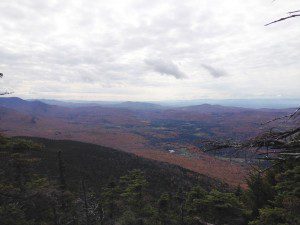 I recently heard Ann Druyan interviewed on Radio Lab. She spoke of falling in love with Carl Sagan when they were working together on the Voyager mission in the late 70s, where she was in charge of developing the content that would be sent out into space for alien cultures to discover. It was a touching and romantic story.
I recently heard Ann Druyan interviewed on Radio Lab. She spoke of falling in love with Carl Sagan when they were working together on the Voyager mission in the late 70s, where she was in charge of developing the content that would be sent out into space for alien cultures to discover. It was a touching and romantic story.
Carl Sagan was a shining light of reason, wonder, and science and his untimely early death in 1996 has been a blow to scientific literacy.
As you know, I live in Northern Vermont where there is no shortage of breathtaking natural beauty. On a Saturday, I hiked up Mt. Abe, one of Vermont’s 4000+ peaks. The view from the top was nothing short of spectacular. The following day I took the ferry across the lake. The sun shone brilliantly on the water and the mountains.
It is easy to idealize nature and vilify the human-made landscape. We are spoiled here in Vermont with such an abundance of unspoiled natural settings.
However, looking at this world from the view of the cosmos, might open up another perspective. An alien culture may be impressed with our landscapes but they are sure to be interested in what we have built ourselves.
Imagine an alien beholding a mountain range and a city skyline. I think they may be more impressed with the constructed landscape. We can appreciate both. As citizens of the cosmos, what we build says as much about us as what we conserve or simply what we find in our world.
If we look at our landscapes from this citizen-of-the-cosmos perspective, we may grow to have a greater appreciation for what we have and what we create. We may be more mindful of what we create. Architecture becomes a way of communicating humanity to potential other audiences. Urban planners could imagine aliens looking over their shoulders to marvel or disdain what they plan.
When we alter a landscape, we can also invite these alien perspectives to wonder about our choices. Perhaps we would be less likely to despoil that landscape if we had to explain it to an outside party, even if this party had no particular agenda of their own.
Considering our place in the cosmos, regardless of alien intelligences, can put our actions in a larger context–an unfathomably large context–the entire universe. This vastness can be an invitation to awe and humility. Whether or not we are the only life forms in the Universe, it is remarkable that we are here.
Can we appreciate this, not just when we happen to look up at the stars but in every moment we inhabit this body on this earth in the cosmos? Mindfulness can help us to do that.

